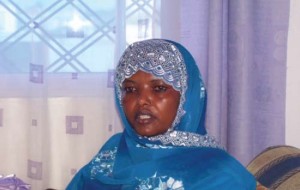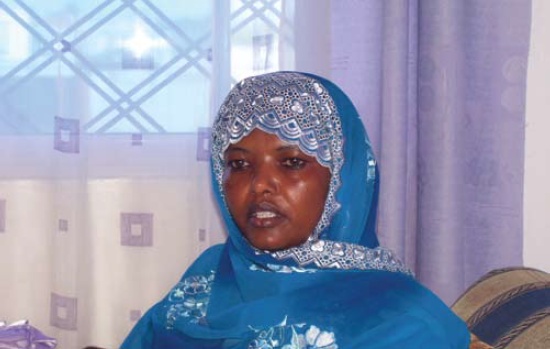
Muslim Somali Woman Leads Way
Born in 1964, Dekha Ibrahim Abdi did not know peace until in the ’90s.
Before then, violence was the order of the day. Deaths followed incidents between the Ogaden and Degodia communities [in the border area of Somalia and Kenya].
“The night before I sat for my high school examinations, state security agents burnt the villages and everyone had to move to a nearby school,” she says.
“In those days, going to the market was choosing between life and death. If you slept through the night and woke up the next day, you thanked God, and prayed that your life would be spared to see another day. Those were frightening times.”
“When I became a mother, I stopped asking when the conflict would stop. I knew somebody had to stop it,” she says.
With other women, she founded Wajir Peace Group in 1992.
For her peace work, she is one of the six recipients of this year’s prestigious Right Livelihood Award.
The foundation recognizes those “working on practical and exemplary solutions to the most urgent challenges facing the world today.”
She becomes the second Kenyan recipient of the Right Livelihood Award after Nobel Peace Prize laureate Professor Wangari Maathai who was honoured in 1984 for her grassroots environmental work in the Greenbelt Movement.
The 43-year-old mother of four says she will use the prize money, about Sh5 million [about $80,000 in U.S. dollars], as an endowment fund to build a university in Wajir.
Dekha’s religious and spiritual identity as a Muslim forms a strong foundation for her peace work.
She is credited for knitting together a cooperative process in diverse ethnic and cultural situations to overcome religious and other differences – leading to peace and development.
“I bring to the negotiating table the skills and processes I have learned from my experiences as a peacemaker, as well as my heritage as a Somali, Muslim woman,” she says.
In the beginning the Wajir Peace Corps was not well received. “The government then was wary of any public gatherings.”
Besides the government, community elders were not willing to take them seriously on account of their age and gender.
“In addition, some people in the community believed in revenge. To the elders, talking reconciliation with another clan was outrageous,” she says.
However, Dekha and her colleagues sought support from older Somali women.
“Our culture respects older women and their views are appreciated and considered important by the male elders,” she adds.
In 1998, Eastern Mennonite University offered her a six-week training on writing.
This gave her chance to not only talk about her experiences as a mediator, but also write about them.
“When I narrated my experiences, some people thought I was making up the stories. They could not believe it.”
Her daily interactions with other participants ignited a new passion in her.
Dekha was convinced that writing about her experiences would offer insights into conflicts.
“I made contributions in a book, Working with Conflict, Skills and Strategies for Peace, by Zed Books,” she says.
Dekha has worked as a consultant trainer on peacebuilding and pastoralist development with many local and international agencies in Cambodia, Somalia, Sudan, Sierra Leone, Nigeria, Germany, Ethiopia, South Africa, Netherlands, Zimbabwe, the United Kingdom, Uganda, Ghana and Kenya.
[This piece is adapted from a December 2, 2007, article in The Standard of Kenya. Note: Dekha Ibrahim Abdi’s life was tragically cut short in an automobile accident in the summer of 2011, less than a month after vising EMU again for a “Women, War and Peace” forum. Read the tribute from her friend, Jan Jenner: Dekha Ibrahim Abdi: Peacebuilder, Colleague, Friend.]
